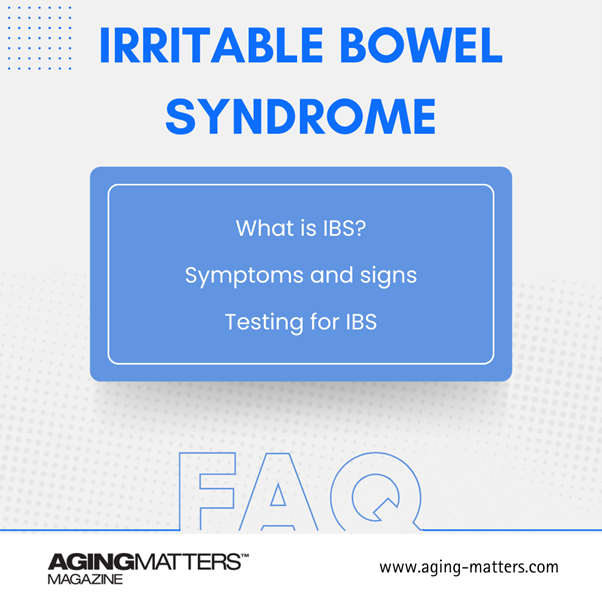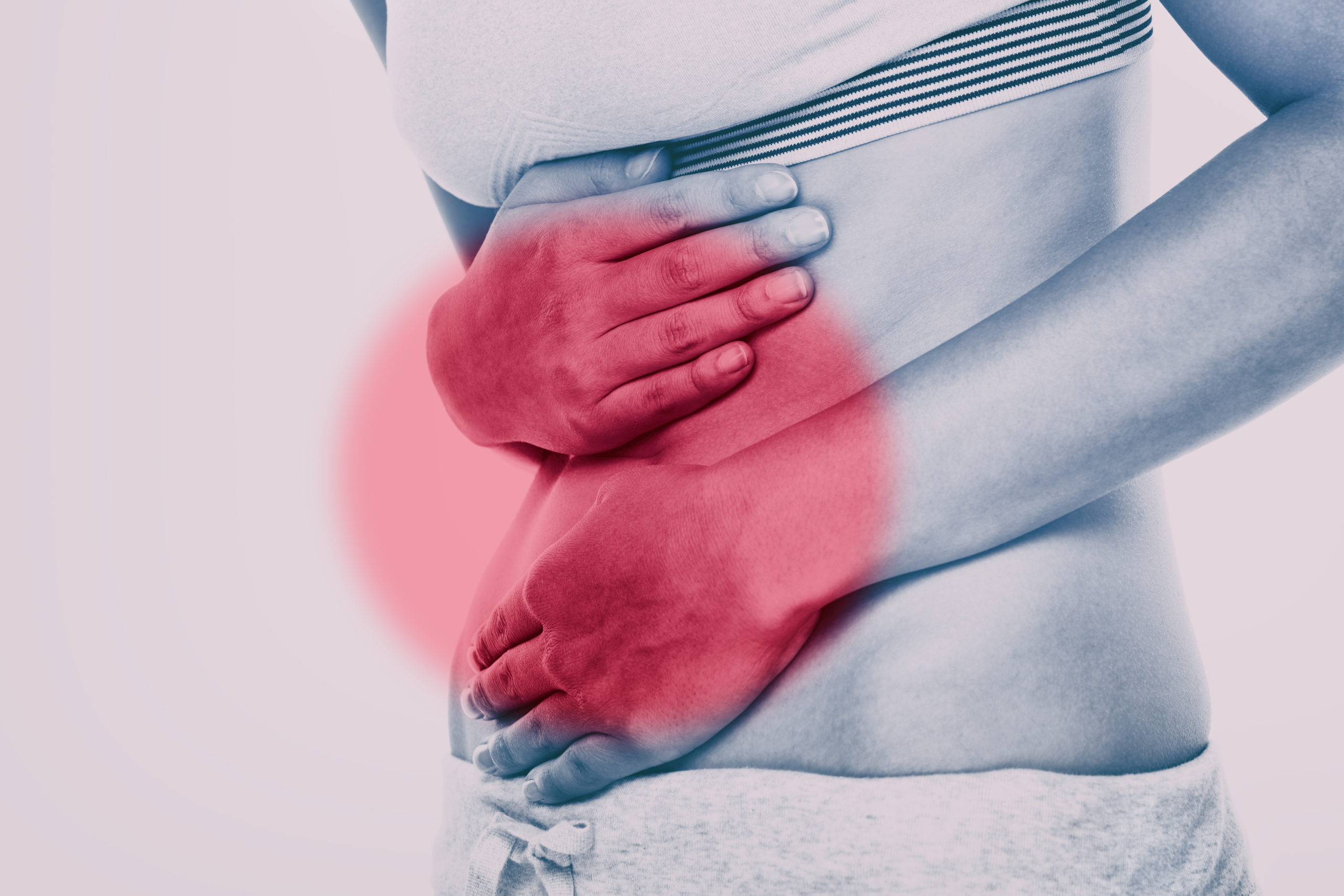
FAQ: Irritable Bowel Syndrome (IBS)
August 21st, 2024This week we are looking at IBS (irritable bowel syndrome). It is estimated that between 5-10% of the global population suffer with IBS, potentially more that have not been diagnosed. Whilst for some it is a mild condition, for others it can cause crippling, debilitating symptoms. Many have questions about IBS; we’re here to provide answers to some of the most common.
All about IBS
What is IBS?
IBS (Irritable Bowel Syndrome) affects the digestive system, causing cramps, bloating, constipation, diarrhea and other gut problems. It is a lifelong condition that has no cure and no known cause, but can be managed through lifestyle changes, diet, medications (to manage symptoms) and supplements.
Is it classed as a disability?
This will depend on the severity of your symptoms, but an IBS diagnosis on its own is not typically enough to be classed as a long-term disability. That being said, a lot will depend on whether IBS impacts your day to day activities, and whether you have any other effects which hamper your life.
How is it diagnosed?
There is no specific “IBS test” but there are a range of tests that may be conducted to rule out other possible causes for your symptoms
Clinical diagnosis and testing
- Blood tests – GPs can order blood tests to check for other problems like coeliac disease, thyroid disorders, specific Immunoglobulin A (IgA) Deficiency and inflammatory markers.
- Stool samples – these can be checked for inflammatory bowel disease (IBD) and infections.
- Tests for IBD (inflammatory bowel disease) – including physical exams, blood tetss, stool tests and endoscopic procedures to view the gastrointestinal tract.
Tests you can do at home
- IBS blood tests – there are a number of “at home” blood tests that can be useful when trying to diagnose IBS. They check for anti-CdtB and anti-vinculin, antibodies associated with IBS that have developed from previous gastrointestinal infections.
- Food intolerance/allergy testing – it is possible to buy testing kits to check for food intolerance or allergies that cause trigger IBS flare ups.
Symptoms and signs of IBS
Can IBS be detected before symptoms appear?
No, as there are no set tests to check for IBS before symptoms appear.
Relieving the pain caused by IBS
Managing the pain and discomfort caused by an IBS flare up is important to maintain a happy lifestyle. This can include:
- Lifestyle changes – include regular exercise, a different diet, giving up alcohol or smoking and reducing the amount of carbonated drinks.
- Anti cramping medications – these work to relieve the pain from cramps caused by tightened muscles in the intestine.
- Hot water bottles or heat pads – this helps to relieve cramps and belly pain, albeit temporarily.
- OTC pain relief life ibuprofen or paracetamol – this can help in a mild attack.
- Abdominal massage – this can help to get the gut moving and is especially useful in cases where constipation is present.
- Relaxation techniques such as yoga – this can help to lower stress and anxiety, which can be a cause for IBS.
What is a flare up?
This is the term used to describe a period where symptoms of IBS may appear or worsen. A flare up can last a few days to a few weeks, but following medical advice and avoiding triggers will help to keep these to a minimum.
How long do flare ups last?
This varies depending on the individual and on the trigger, from a few hours to a few weeks, even months if changes are not made to avoid triggers.
What causes IBS
Is it hereditary?
There has been no evidence of a significant genetic link between IBS and family sufferers. Lifestyle is seen to be more of a likely factor in an IBS diagnosis.
Does it run in families?
It does tend to run in families however as above there is no genetic link.
Can you catch it from someone else?
No, it is not infectious or contagious.
That doesn’t mean that an IBS sufferer who then catches an infectious or contagious unrelated gastro infection cannot pass that on.
How common is IBS?
It is estimated that between 10-15% of the global population suffer from IBS; most likely more than this as many people will not chase a diagnosis if their symptoms are minor.
How does IBS affect your physical health?
Whilst IBS will not cause you to become unfit or in poor physical health on its own, the physical symptoms of IBS can be debilitating and stop you doing your everyday activities and also physical exercise activities due to pain and discomfort.
Most experts in this field agree that low to moderate exercise is beneficial for IBS sufferers as this helps to keep the digestive system moving, however intense training, especially endurance training, may be counterproductive.
In addition, it is important to eat a healthy diet and keeping hydrated whilst avoiding foods or supplements you know will trigger your symptoms.
Can you prevent IBS?
Sadly no, as there is no known cause.
Is there a cure?
No, but as a chronic long term condition, IBS can be managed with lifestyle changes, diet and medication where required. This helps to prevent flare ups but will not cure the condition.
Life expectancy of IBS sufferers
IBS sufferers will not have a shorter lifespan or expectancy due to their condition. However they may find life difficult if they do not manage their condition.
Other health conditions
Which health conditions can impact IBS?
There are links with other health conditions that may be contributory to an IBS flare up, including stress, depression and anxiety.
In addition, food intolerances and sensitivities can trigger IBS symptoms, as well as bacterial infections or small intestinal bacterial overgrowth.
Other health problems that may present with similar symptoms
It can be tricky to know whether you have IBS or another, similar health condition. Such problems include:
- Ulcerative Colitis – Ulcerative Colitis (UC) is a type of IBD that causes ulcers and inflammation inside the colin. Symptoms include pain in the rectum and abdomen fatigue, cramps, diarrhea, sometimes bloody stools and weight loss.
- Microscopic Colitis – this is an inflammation of the colin which may go away without treatment. Symptoms of MC include an urgent need to defacate, diarrhea in the night, watery and chronic diarrhea in the day, fecal incontinence, weight loss and fatigue.
- Crohn’s disease – this is a type of IBD that is similar to UC but affects a different part of the digestive tract. Symptoms include
- Lactose intolerance – someone with lactose intolerance struggles to digest the sugar in dairy products (lactose). This causes IBS symptoms such as gas, diarrhea, bloating, belly pain and nausea.
- Stress – stress can cause IBS symptoms as it causes the digestive system to become sluggish, leading to cramping, gas and stomach problems.
- Diverticulitis – Diverticulitis is where weak parts of the colon sag; this sagging causes pouches to form in the lower part of the colin and eventually tear. This tearing causes inflammation/infection, leading to severe/constant tummy pain, especially after eating, blood in stools, diarrhea, bloating and constipation.
- Celiac disease – this is an immune disorder whereby the immune system attacks the small intestine whenever gluten is consumed. Symptoms include loose and bad smelling stools, bloating, diarrhea, constipation, gas, nausea, vomiting and abdomen pain. The only way to treat Celiac disease is by eating a gluten free diet.
- Gallstones – Gallstones form inside your gallbladder and can cause blockages. Symptoms of gallstones include sharp belly pain, high fever with chills or yellowing of the skin and eyes.
- Pancreatitis – a condition where your pancreas do not help digest food in the way they should. This can lead to IBS symptoms including stomach pain, bloating and diarrhea.
Medication & Lifestyle Associations
Alcohol links with IBS
Alcohol can irritate the gut which can lead to a flare up of IBS. Symptoms of an alcohol related flare up include increased bloating or cramping, constipation or diarrhea.
Smoking links with IBS
Smoking has been linked with IBS due to the nicotine in cigarettes leading to an over production of stomach acid and a reduction in the production of sodium bicarbonate. This can worsen IBS symptoms.
Common drug links with IBS
Certain medications have been linked with a flare up of IBS symptoms including:
- Antibiotics (especially if they are longer term). These can upset the balance of bacteria in the gut, making a flare up more likely.
- Tricyclic antidepressants (such as amitriptyline or doxepin). These can make constipation worse.
- SSRI antidepressants such as sertraline or paroxetine. These can make diarrhea worse.
- Any medication which contains sorbitol, a type of sugar alcohol that occurs naturally in some fruits. It is often used as a low calorie sweetener in medical solutions. This can have similar effects to drinking alcohol.
Other questions
Can a special diet help?
Diet is very important with managing IBS symptoms; there is no “one size fits all” IBS diet, each individual needs to find out what triggers them and reduce/remove that from their diet.
As a general rule, fatty/fried foods, dairy and foods that are high in fiber act as triggers.
Which are the worst foods for IBS?
This will vary from person to person however in general:
- Fatty or fried foods – they can cause cramps and make the intestines tighten in a person who does not have IBS, so can make symptoms worse for an IBS sufferer.
- Dairy, especially if you are lactose intolerant – the lactose in dairy products can cause gas and bloating if your body does not produce enough lactase to break it down.
- Foods containing gluten, especially if you have a sensitivity to gluten (different to Celiac disease) – this can cause symptoms like bloating, gas and pain to worsen.
- Carbonated drinks – fizzy drinks can cause bloating and gas, which can make IBS worse.
- Fruits that are heavy in fiber or eating a lot of foods containing fiber – too much fiber can irritate the bowel, causing diarrhea, bloating, pain and discomfort.
Will regular exercise help to reduce the risk of IBS?
Research has shown that low/moderate levels of exercise can help to reduce IBS symptoms but will not act as a cure for IBS.
We would always advocate living a healthy lifestyle, with regular exercise a large part of maintaining health and wellness.
Which dietary supplements can help?
- Certain peptide bioregulators have been linked with helping to rebalance different organs and areas of the body. Stomach mucus/stomach peptide bioregulators can help with IBS by normalizing the digestive functions of the stomach.
- Symprove® is a very popular probiotic oral solution which has been developed to aid IBS sufferers. It works by introducing 4 unique live strains of bacteria into the body; being water based, it does not start the digestive process upon entry.
- Checking in general that any supplements you do take don’t contain Sorbitol is also important, if alcohol is a trigger.








